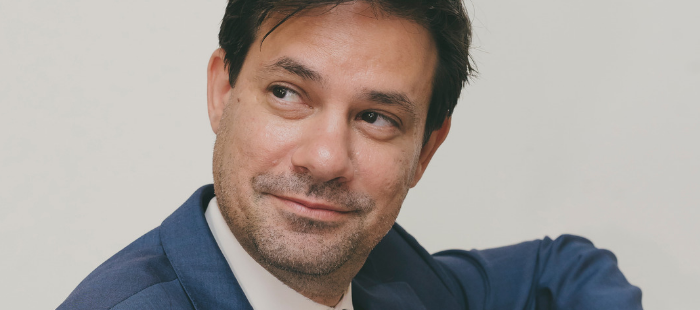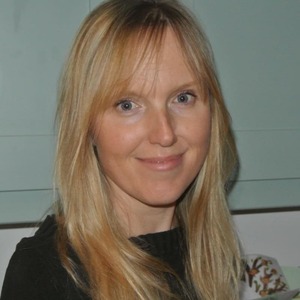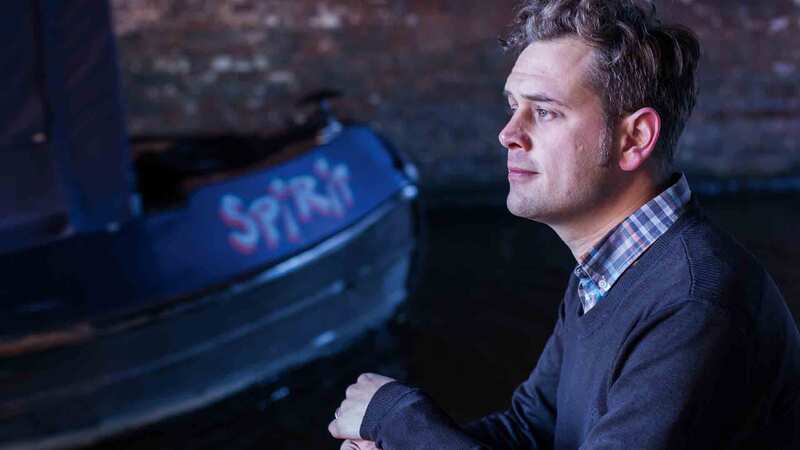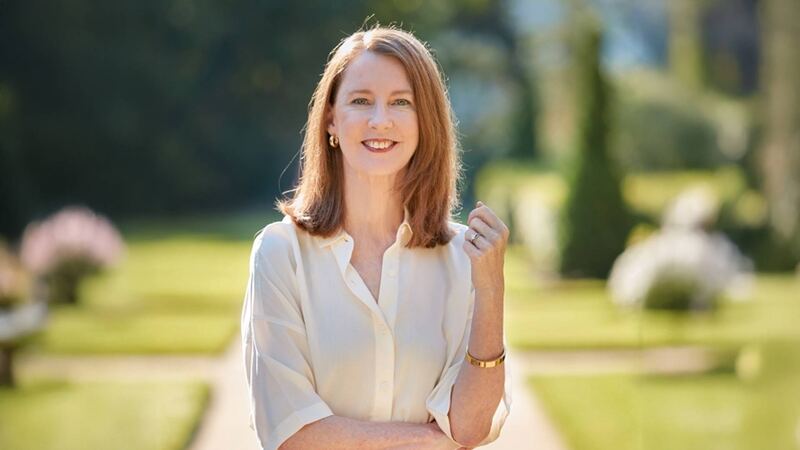You are viewing your 1 free article this month. Login to read more articles.
Sam Copeland | 'Children’s books give you the freedom to be funny'
It’s a widely held adage that publishers, agents and booksellers alike all harbour a secret desire to get published. But for Sam Copeland, literary agent turned children’s author, that really was not the case. "If you had asked me two years ago I would have said no, I was never going to write a book," he laughs when we meet at Penguin Random House’s office overlooking the Thames.
His début young fiction series has been snapped up by Puffin for a hefty six-figure sum. The first book, Charlie Changes Into a Chicken, will be published in February, with two further titles to follow. The move into writing, he tells me, has taken him by surprise. Copeland began a course of therapy two years ago. His therapist suggested he might get a creative outpouring and "I scoffed at the very idea of it". But a year later he did begin to write, and it marked a turning point in his life. "I clearly had a hole before, that I didn’t realise was there. Now I get agitated if I’m not writing. I want to write all the time. I needed to do something creative."
Charlie Changes Into a Chicken follows nine-year-old Charlie McGuffin. Life is conspiring against his optimistic nature: his brother is in hospital and the school bully is circling. When Charlie gets stressed, something extraordinary happens: he changes into an animal... flea, pigeon, rhino, who knows what next? With the help of his friends he needs to find a solution—and fast. Sarah Horne’s energetic illustrations are a perfect fit, capturing Copeland’s vision for Charlie and his friends, who are all based on "colleagues who have kept me sane". He adds: "Seeing it illustrated has been one of the most extraordinary parts." Delightfully silly with a big heart, it’s one of the freshest, funniest débuts I’ve read in a long time, and it’s easy to see why it’s generating such a buzz.
I realised I wanted to write funny, and children’s books give you the freedom to be funny
Copeland knew it would be a book for children. "I realised I wanted to write funny, and children’s books give you the freedom to be funny". He admits to "flying by the seat of my pants" when it came to plotting and planning, shaping the story around a series of comic sequences. Initially, he felt it was a "frivolous" book, but he "came to realise I was talking about my own childhood. Charlie is based primarily on me, or the child I would like to have been." The book is part of a growing wave of fiction and picture books addressing childhood anxiety and mental health but this was, he explains, an organic process rather than a deliberate move. The device of Charlie’s physical transformation was central from the start but it was Copeland’s wife, an educational psychologist, who made the link. "I thought it was happening when he was scared, but she told me, ‘What you’re talking about is anxiety.’ Slowly, I realised I was writing about my own anxiety." Fiction can be a gentle, accessible way of addressing such feelings. "If it helps one child anywhere, that would be amazing."
Laughing matters
Comedy is hard to do right, but Copeland’s enviable timing and knack for properly laugh-out-loud jokes set this apart. Charlie’s experiences in animal form are comedy gold. As a spider, he’s pursued by the family cat Chairman Meow in a slapstick chase. When he is a pigeon, two French love rivals vie for his affections—it is just genius. "I’ve always struggled with seriousness," he admits. Funny books can, he believes, be vital in hooking children into reading. "Every book is important, but especially comedic books, because getting people to laugh is a real emotional reaction. That is what you want from any book." He cites Roald Dahl as a comedy hero, and also Lemony Snicket. "Reading him is such a depressing experience. So sharp, so clever, so funny and so wise."
Copeland has been in books all of his working life. He grew up in Manchester, moved to London in 1997, and became a bookseller for Books Etc. In 2001 he became a literary agent and he has been with Rogers, Coleridge & White since 2006. So has this insider knowledge proved help or hindrance? He submitted the manuscript to agents under the guise of "anonymous in publishing", not revealing his identity until he arrived at agent Julia Churchill’s office for a meeting. "I would love to say that I did it because I wanted a fair crack of the whip but the truth was I was so worried that I was going to become a laughing stock!" Where his background has helped, he says, is in his knowledge of how publishing works. "I’m able to discuss everything very clearly with Julia and my editor." But it can be a double-edged sword and there have been times when that insider view has felt more of a hindrance. Having the book out on submission to editors, knowing when their acquisition meetings were, was an "absolute nightmare! No anxiety worse." He feels he has very much experienced the emotional roller-coaster of being a début author, just like any other. "If you’re a dentist, you still feel the pain of the drill. I’m a whirlpool of anxieties and neuroses."
Trading places
Where that trade background does pay off, I suspect, is in expectations. At the time of our interview, the book has sold in 20 languages and a screen rights deal has been struck: pretty spectacular stuff for a début. Copeland is clearly thrilled but decidedly level-headed, particularly where the movie deal is concerned, and he certainly won’t be giving up the day job. However, "despite my 20-odd years in the game" he is deeply uncynical, and confesses to being genuinely surprised at how emotional he has felt. Getting the book deal was, he tells me, "second only to the birth of my children and getting married. It really was one of the great moments of my life."
Copeland may only have started writing very recently but now—he laughs—"I can’t stop. I’m basically working every hour God sends me. I’m loving it." Books two and three are already finished, with publication scheduled for August 2019 and early 2020 respectively. Expect "lots more of the cat, lots more of the pigeons and many more animals too". Book two involved a little more planning and lots of brainstorming with editor Ben Horslen; Copeland has found the editorial process invaluable. "Having both an agent and an editor working on your manuscript is absolutely fantastic. It’s like a car wash: it goes in one end and comes out the other, wow, so much better."
His own children are aged eight and 10. He didn’t tell them he was writing a children’s book until the deal was signed, but they have now read it. Though the eldest was fairly blasé, he seems to have passed the embarrassing dad test. "My daughter said, ‘Dad, I can’t believe you’re an author.’ Nor," quips Copeland, "can I." He’s now looking forward to seeing the reaction of child readers and is energised—and slightly terrified—by the prospect of school events. "The idea of any child reading my book is just completely insane to me. It’s so exciting. I really can’t wait for it."
Book extract
Ms Fyre edged round Charlie to open the window, then started waving her arms at Charlie, trying to force him out.
Charlie didn’t need any more encouragement. With one beat of his wings he was at the window, and with another he was out and into the playground. He was free! He had escaped! He was a pigeon!
Settling on the tarmac, Charlie bobbed uncertainly forward. Before he had time to gather his thoughts a startling flap of wings nearly made him jump out of his feathers.
Another pigeon had landed next to him. It was pacing back and forth around him, head bobbing, neck feathers glinting in the sunshine. It had gnarled toes and one foot was a stump, like a lump of popcorn. Its eyes, little black holes in burnt orange, were ‚Äì and Charlie could not mistake this ‚Äì staring straight at him. The pigeon cooed, deep and low, and to Charlie’s utter shock he realized it was talking to him. He could understand pigeon. And the first words that he heard the other pigeon say were: "Allo, you beautiful, delightful little pigeon. My name is Jean-Claude..."










